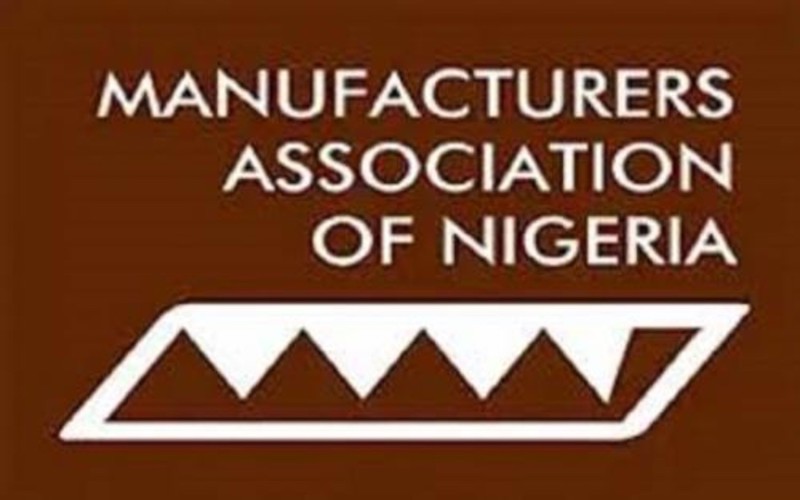By Felicia Nwosu
Following the move by the Central Bank of Nigeria (CBN) lifting its ban on 43 items which it previously stopped from accessing foreign exchange from the investor’s and exporters’ window, Segun Ajayi-Kadir, Director General/CEO of Manufacturers Association of Nigeria (MAN), has said that CBN ought to have consulted stakeholders to discuss the development of policies, practices and issues of mutual concern before taking its decision.
He said this will enable them proffer solutions and genuine exchange of views through overall strategic approach.
Some of the items listed include Rice, Cement, Margarine, roofing sheets and several other items.
Ajayi-Kadir, while stating the position of manufacturers during the daily Business Nigeria on TVC, monitored by MARKETING EDGE, said it would have been more appropriate if CBN had listened to understand the views and feedback from stakeholders. He, therefore, pointed out the need for further discussion.
The MAN DG explained that though the move by the apex bank was driven by an attempt to boost foreign exchange availability and also to discourage the pressure that is in the parallel market, he added that consultation with stakeholders could have helped to shape and improve the overall operations of the sector.
“MAN is completely aligned with having an effective management of the forex environment, knowing that it is important for us in terms of sourcing our raw materials, spare parts and machines that are not locally available. But there is a need for one to examine it closely, and all boils down to the issue of not consulting the stakeholders before measures are taken.
“We need to be able to have this conversation and for us to see what measures are needed to support this removal of restrictions, because monetary policy cannot act alone. It has to be supported by fiscal policy measures. And the customs have to be aware of the lapses that have led to an ineffective implementation or lackluster performance of the results that was expected by the CBN when this measure was introduced. So I think a conversation will have resolved all of this. And we have indicated that we want a conversation to address it, because on the surface of it, it may look OK to the CBN, but there are underlying factors that promise to be in grave danger for some sectors in the manufacturing area.”
He noted that, from the recommendations of the Presidential Committee, the association is trying to ensure that the fiscal policy measures are used to address fiscal issues such that they do not contradict and jeopardize the monetary policy.
“Even when the policy was started by the previous administration, we raised issues about those items that are included in that list of 43 items. We indicated that many more ought to have been added and some ought to have been removed, particularly those that we do not have local capacity to generate and we do not have immediate plans for its availability locally. We felt that it was going to negatively affect some companies and it did. However, it helped to boost capacity locally.”
According to the seasoned manufacturer, this will enable them to know how the economy has performed or how their businesses have performed or what has happened between the times the policy was introduced and now, before any change can be made.
“So, I think our reaction is that it is desirable for us to have some effective management by the CBN in those areas. There is a need for us to have a conversation that will address a review of that policy. It is good that we reduce pressure in the parallel market, but it may inadvertently affect some sectors. I can give you a good example. These corrugated, galvanized, and colored coated rolling sheets have been negatively affected by this policy,” he said.
He commended the initiative introduced by the government to improve the environment such as the presidential committee on fiscal policy and tax reform, describing some of the recommendations as respite for business operators.
“Liquidity is an issue and the government has to address it squarely. I believe that the measures being taken to clear the backlog are a step in the right direction. And I think everyone should support the government to do it and boost liquidity. This is because, once there is pressure, the prices will go up. Government should focus on prioritizing the allocation of this scarce forex to the productive sector. That is the only way you will reduce the demands for forex. Every economy that has succeeded in managing its foreign exchange crisis has had to develop productivity, the MAN boss said.
The Central Bank of Nigeria’s move towards restoring 43 items prohibited from access to the foreign exchange (FX) window in 2015 resurfaced eight years after the items were banned from the official FX windows.
In 2015, the CBN restricted the availability of foreign exchange to the importation of 43 items which could be locally produced within the country. Importers of all the 43 items previously restricted by the 2015 Circular referenced TED/FEM/FPC/GEN/01/010 and its addendums are now allowed to purchase foreign exchange in the Nigerian Foreign Exchange Market. This was revealed by the apex bank recently.






Comment
No comments found.